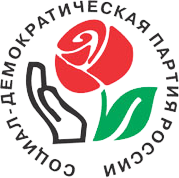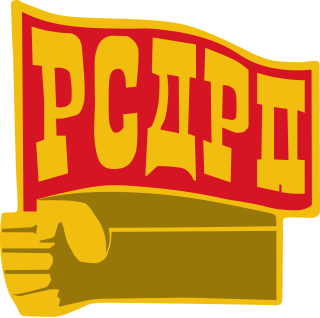Marxism–Leninism is a communist ideology that was the predominant branch of the communist movement throughout the 20th century. Developed in Russia by the Bolsheviks, it was the state ideology of the Soviet Union, Soviet satellite states in the Eastern Bloc, and various countries in the Non-Aligned Movement and Third World during the Cold War, as well as the Communist International after Bolshevisation. Today, Marxism–Leninism is the ideology of the ruling parties of China, Cuba, Laos and Vietnam, as well as many other Communist parties. The state ideology of North Korea is derived from Marxism–Leninism. Marxist–Leninist states are commonly referred to as "communist states" by Western academics. Marxist–Leninists reject anarchism and left communism, as well as reformist socialism and social democracy. They oppose fascism and liberal democracy, and are self-proclaimed anti-imperialists. Marxism–Leninism holds that a two-stage communist revolution is needed to replace capitalism. A vanguard party, organized through democratic centralism, would seize power on behalf of the proletariat and establish a one-party socialist state, called the dictatorship of the proletariat. The state would control the means of production, suppress opposition, counter-revolution, and the bourgeoisie, and promote Soviet collectivism, to pave the way for an eventual communist society that would be classless and stateless.
Communist Party of Russia might refer to:
Democratic Party most often refers to:
The Social Democratic Party of Lithuania is a centre-left and social democratic political party in Lithuania. Founded as an underground Marxist organization in 1896, it is the oldest extant party in Lithuania. During the time of the Soviet Union, the party went into exile, emerging once again in Lithuania in 1989.

The Social Democratic Party of Russia (SDPR; Russian: Социал-демократическая партия России; СДПР; Sotsial-demokraticheskaya partiya Rossii, SDPR) was a political party founded in Russia by Mikhail Gorbachev on November 26, 2001. The first name of the party was Social Democratic Party of Russia (United).

Pro-Europeanism, sometimes called European Unionism, is a political position that favours European integration and membership of the European Union (EU).

Young European Socialists (YES), formerly the European Community Organisation of Socialist Youth (ECOSY), is an association of social democratic youth organisations in Europe and the European Union.
The Prague Conference, officially the 6th All-Russian Conference of the Russian Social Democratic Labour Party, was held in Prague, Austria-Hungary, on 5–17 January 1912. Sixteen Bolsheviks and two Mensheviks attended, although Joseph Stalin and Yakov Sverdlov were unable to attend because they were in internal exile at the time, while Georgi Plekhanov claimed he was too ill to attend. At the conference, Vladimir Lenin and his supporters broke away from the rest of the Russian Social Democratic Labour Party and formed their own predominantly Bolshevik Russian Social Democratic Labour Party. The conference was meant to be secret; Lenin had instructed: "No-one, no organisation must know about this". However, every detail was known to the Okhrana, the secret police of the Russian Empire.
A leadership election is a political contest held in various countries by which the members of a political party determine who will be the leader of their party.
The Socialist Party of British Columbia (SPBC) was a provincial political party in British Columbia, Canada, from 1901 to 1905. In 1903, the SPBC won seats in the Legislative Assembly of British Columbia.
The Communist Party of the Russian SFSR may refer to:
Social democracy is a political, social, and economic philosophy within socialism that supports political and economic democracy. As a policy regime, it is described by academics as advocating economic and social interventions to promote social justice within the framework of a liberal-democratic polity and a capitalist-oriented mixed economy. The protocols and norms used to accomplish this involve a commitment to representative and participatory democracy, measures for income redistribution, regulation of the economy in the general interest, and social welfare provisions. Due to longstanding governance by social democratic parties during the post-war consensus and their influence on socioeconomic policy in Northern and Western Europe, social democracy became associated with Keynesianism, the Nordic model, the social-liberal paradigm, and welfare states within political circles in the late 20th century. It has been described as the most common form of Western or modern socialism, as well as the reformist wing of democratic socialism.
Labour Party or Labor Party is a name used by many political parties.
Democratic socialism is a left-wing political philosophy that supports political democracy and some form of a socially owned economy, with a particular emphasis on economic democracy, workplace democracy, and workers' self-management within a market socialist economy or an alternative form of a decentralised planned socialist economy. Democratic socialists argue that capitalism is inherently incompatible with the values of freedom, equality, and solidarity and that these ideals can only be achieved through the realisation of a socialist society. Although most democratic socialists seek a gradual transition to socialism, democratic socialism can support revolutionary or reformist politics to establish socialism. Democratic socialism was popularised by socialists who opposed the backsliding towards a one-party state in the Soviet Union and other nations during the 20th century.

The Russian Social Democratic Labour Party, also known as the Russian Social Democratic Workers' Party or the Russian Social Democratic Party, was a socialist political party founded in 1898 in Minsk.

The General Jewish Labour Bund in Lithuania, Poland and Russia, generally called The Bund or the Jewish Labour Bund, was a secular Jewish socialist party initially formed in the Russian Empire and active between 1897 and 1920. In 1917 the Bund organizations in Poland seceded from the Russian Bund and created a new Polish General Jewish Labour Bund which continued to operate in Poland in the years between the two world wars. The majority faction of the Russian Bund was dissolved in 1921 and incorporated into the Communist Party. Other remnants of the Bund endured in various countries. A member of the Bund was called a Bundist.
The history of socialism has its origins in the Age of Enlightenment and the 1789 French Revolution along with the changes that it brought, although it has precedents in earlier movements and ideas. The Communist Manifesto was written by Karl Marx and Friedrich Engels in 1847-48 just before the Revolutions of 1848 swept Europe, expressing what they termed scientific socialism. In the last third of the 19th century parties dedicated to Democratic socialism arose in Europe, drawing mainly from Marxism. The Australian Labor Party was the world's first elected socialist party when it formed government in the Colony of Queensland for a week in 1899.



